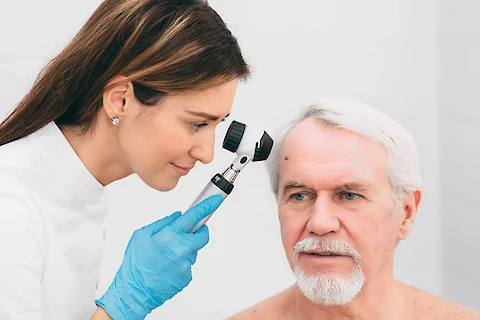
For caregivers of elders with dementia, managing routine skin cancer screenings can be a challenging task. This is even compounded by the unique needs and difficulties dementia presents. However, your dedication to your loved one's well-being is commendable, and we're here to help. This blog post, courtesy of Senior Helpers Western Kentucky, aims to provide valuable insights for caregivers who are navigating the process of skin cancer screenings for elders with dementia.
Understanding Skin Cancer Screenings
Skin cancer screenings are procedures to detect any abnormal growths or changes in the skin that may indicate the presence of cancer. Screenings typically involve a visual examination by a healthcare professional. In some cases, more specialized tests like a dermoscopy or biopsy may be needed. Detecting skin cancer in its early stages increases the chances of successful treatment and better outcomes for your senior loved one.
Managing Skin Cancer Screenings for Elders with Dementia
Choosing the right healthcare provider is a crucial first step in managing skin cancer screenings for your senior. Find a dermatologist experienced in working with dementia patients. They can ensure a more comfortable and supportive environment during the screening process. Make sure there's clear communication between yourself, the senior, and the healthcare provider. It can help ease any concerns and answer questions that may arise.
When preparing for the appointment, try to schedule it when your senior is at their best. This helps mitigate agitation and improve cooperation. Bring comfort items that can help ease their anxiety, such as a favorite blanket or a familiar object. Before the appointment, explain the procedure to your senior in simple terms, reassuring them that it's essential for their health and well-being.
During the appointment, your presence and attentiveness can go a long way in ensuring a smooth process. Ask questions, take notes, and make sure the senior feels comfortable throughout the screening. By being proactive and involved, you can help create a positive experience for you and your loved one.
Dealing with Results and Follow-Up Appointments
After receiving the results of the skin cancer screening, try to understand what they mean for your senior. Negative results indicate no signs of skin cancer, which is great news. Positive results, however, confirm the presence of skin cancer and will require further discussion with the healthcare provider regarding treatment options. Inconclusive results mean more testing is needed to determine whether or not cancer is present.
If follow-up appointments are necessary, make sure to schedule them promptly. Maintaining continuity of care with the same healthcare provider can help build trust and familiarity, making each visit more comfortable for your senior. When discussing treatment options, have an open conversation with the healthcare provider about the benefits and risks of each choice. Together, you can make an informed decision based on your loved one's overall health and quality of life.
Get Premium Senior Care and Support
Although managing skin cancer screenings for elders with dementia and understanding the results can be challenging, your dedication as a caregiver is invaluable. By prioritizing your senior's skin health and following the tips discussed in this blog post, you're taking a significant step in ensuring their comfort and safety.
If you're a caregiver in Hopkinsville, Paducah, Murray, or Madisonville, KY, and need assistance with managing skin cancer screenings for your senior with dementia, contact Senior Helpers Western Kentucky. Our compassionate and professional team is here to provide support and guidance through personalized senior care services.